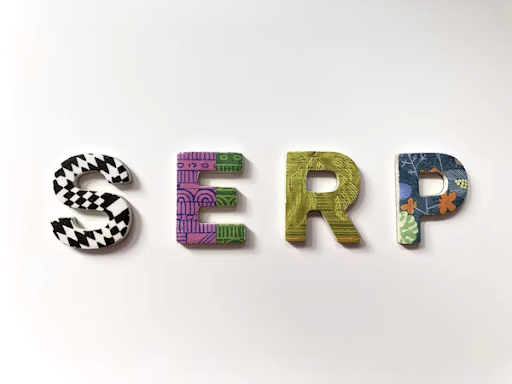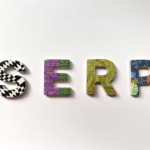When it comes to driving traffic, generating leads, and increasing sales, businesses have two primary digital marketing strategies to choose from: Search Engine Optimization (SEO) and Pay-Per-Click (PPC) advertising. Both strategies can be highly effective, but they serve different purposes and offer distinct advantages depending on your business goals, budget, and timeline. In this blog post, we’ll break down the key differences between SEO and PPC and help you determine which strategy is best for your business.
Understanding SEO
Search Engine Optimization (SEO) is the process of optimizing your website and content to rank higher on search engine results pages (SERPs) organically. SEO involves a variety of techniques, including keyword research, on-page optimization, technical SEO, and link building. The primary goal of SEO is to increase your website’s visibility in search engines like Google, which in turn drives organic (unpaid) traffic to your site.
Pros of SEO:
- Long-Term Results: SEO is a long-term investment that can provide sustainable traffic and leads over time. Once your site ranks high in search results, it can continue to generate traffic without ongoing costs.
- Credibility and Trust: Websites that rank highly in organic search results are often perceived as more credible and trustworthy by users.
- Cost-Effective: Although SEO requires an upfront investment in time and resources, it is generally more cost-effective in the long run compared to PPC, as you don’t pay for each click.
Cons of SEO:
- Time-Consuming: SEO is a slow process, and it can take months to see significant results, especially in competitive industries.
- Algorithm Changes: Search engine algorithms are constantly evolving, which can affect your rankings and require ongoing optimization efforts.
SEO: The Best Long-Term Solution
While PPC offers immediate results, SEO is the best long-term solution for sustainable growth and consistent online visibility. Investing in SEO means building a solid foundation for your digital presence, one that will continue to pay dividends long after your initial efforts.
Here’s why SEO is the preferred strategy for long-term success:
- Sustained Organic Traffic: Once your website ranks highly in search engine results, it can continue to attract organic traffic without ongoing costs. Unlike PPC, where traffic stops when the budget runs out, SEO delivers a steady stream of visitors over time.
- Enhanced Credibility and Trust: Users often perceive websites that rank organically at the top of search results as more credible and trustworthy. This can lead to higher click-through rates, better user engagement, and increased brand loyalty.
- Cost-Effectiveness: While SEO requires an upfront investment in time and resources, it’s more cost-effective in the long run. As your site gains authority and ranks for more keywords, you’ll see a higher return on investment (ROI) without the need for continuous spending on ads.
- Competitive Advantage: A strong SEO strategy helps you stay ahead of competitors in the search results. As you consistently produce high-quality content and optimize your site, you’ll build authority and make it harder for competitors to overtake you in the rankings.
Understanding PPC
Pay-Per-Click (PPC) advertising involves paying for ads that appear at the top of search engine results pages or on various platforms like Google Ads, Facebook, and LinkedIn. With PPC, you bid on keywords relevant to your business, and you only pay when someone clicks on your ad.
Pros of PPC:
- Immediate Results: PPC provides instant visibility and traffic, making it ideal for businesses that need quick results.
- Targeted Advertising: PPC allows you to target specific demographics, locations, and even times of day, ensuring your ads reach the right audience.
- Measurable ROI: PPC campaigns provide detailed analytics, allowing you to track performance, measure ROI, and adjust your strategy in real-time.
Cons of PPC:
- Cost: PPC can be expensive, especially in competitive industries where keyword bids are high. Without proper management, costs can quickly add up.
- Short-Term: Traffic from PPC stops as soon as you stop paying for ads, making it a less sustainable option than SEO.
PPC: The Best Short-Term Solution
If your business needs immediate results, PPC is the go-to strategy. Whether you’re launching a new product, running a time-sensitive promotion, or simply looking to boost traffic quickly, PPC can deliver the instant visibility you need. Unlike SEO, which can take months to show results, PPC ads appear at the top of search results as soon as your campaign goes live.
PPC is particularly effective for short-term goals, such as:
- Promotional Campaigns: If you’re running a limited-time offer or seasonal sale, PPC can help you reach a large audience quickly, maximizing your campaign’s impact.
- Product Launches: When introducing a new product or service, PPC can generate buzz and drive immediate interest, helping you capture early adopters.
- Market Testing: PPC allows you to test different keywords, ad copy, and landing pages to see what resonates with your audience before committing to a broader SEO strategy.
However, it’s important to note that PPC should be carefully managed to avoid overspending. Setting clear goals, monitoring performance, and adjusting bids are crucial to maximizing your ROI.
SEO vs. PPC: Which is Right for Your Business?
The choice between SEO and PPC ultimately depends on your business goals, budget, and timeline. Here’s a quick summary to help you decide:
- If you need quick, immediate results: PPC is the way to go. It provides instant visibility and traffic, making it ideal for short-term goals like promotions or product launches.
- If you’re focused on long-term growth: SEO is a better investment. It takes time to see results, but the benefits are sustainable and can provide ongoing traffic and leads without continuous ad spend.
- If you have a limited budget: While SEO requires an upfront investment, it’s more cost-effective in the long run. PPC, on the other hand, can become costly if not managed carefully.
If you want to build credibility and trust: SEO is the preferred strategy, as organic search results are generally seen as more credible by users.

Combining SEO and PPC: The Best of Both Worlds
For many businesses, the best approach is to integrate both SEO and PPC into their digital marketing strategy. By combining these two strategies, you can enjoy the immediate benefits of PPC while building a strong, long-term presence with SEO. For example, you can use PPC to drive traffic and leads while your SEO efforts are still ramping up, or use PPC to target highly competitive keywords that are difficult to rank for organically.
Conclusion
SEO and PPC are both powerful digital marketing strategies, each with its own strengths and weaknesses. The best strategy for your business depends on your specific needs, goals, and resources. By understanding the differences between SEO and PPC and knowing when to use each, you can create a balanced, effective marketing plan that drives both short-term results and long-term success.






